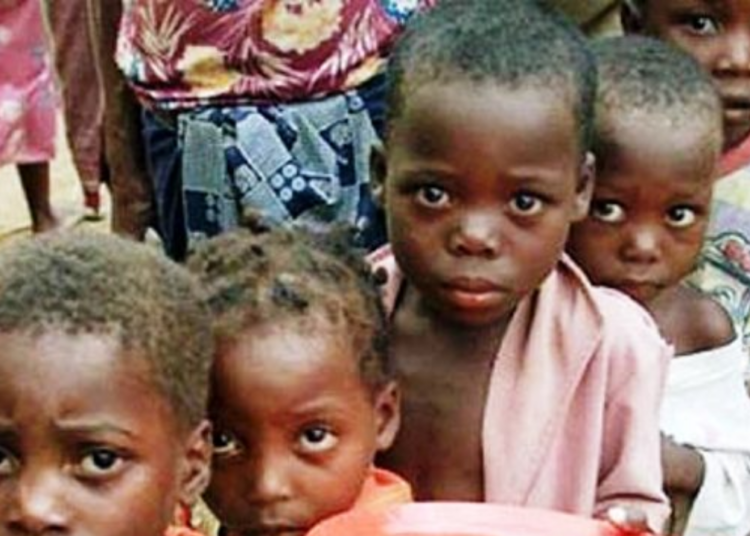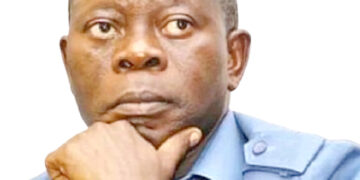Sunday, November 20, 2022 was marked as the World Children’s Day. Historically, the children’s day was established in 1954 as Universal Children’s Day and is celebrated on 20th November each year to promote children rights, create awareness around their issues and efforts worldwide to improve children’s welfare.
It was on same November 20, 1959 that the UN General Assembly adopted the Declaration of the Rights of the Child. It is also on that date in 1989 that the UN General Assembly adopted the Convention on the Rights of the Child.
For those of us in Nigeria, it is an opportunity to draw attention to
the plight of the Nigerian children. A recent data by National Bureau of Statistics (NBS) shows that no fewer than 133 million Nigerians, representing 63 per cent of the population are currently living in multi-dimensional poverty. The children of Nigeria bear the brunt of
Nigeria’s high poverty index.
The United Nations Educational, Scientific and Cultural Organization (UNESCO) said Boko Haram has killed 2,300 teachers in the North East since the start of the insurgency in 2009. In the 2018 UNESCO global education monitoring report (GEM), the UN agency said 19,000 teachers have been displaced in the region, affecting access to education.
“In north-eastern Nigeria, as of late 2017, there were 1.6 million IDPs, including an estimated 700,000 school-age children, as a result of violent attacks on civilians by Boko Haram, which began in 2009 (UNOCHA, 2017b),” the report said.
“Boko Haram has destroyed nearly 1,000 schools and displaced 19,000 teachers (HRW, 2016). Reports indicated it had killed almost 2,300 teachers by 2017 (UNOCHA, 2017a). “The latest education needs assessment found that out of 260 school sites, 28% had been damaged by bullets, shells or shrapnel, 20% had been deliberately set on fire, 32% had been looted and 29% had armed groups or military in close proximity.”
The killing of teachers has resulted to shortage of qualified teachers in the region at the expense of the children. UN also stated that over 1000 children have been abducted by Boko Haram since insurgency started in the North East in 2009.
A 2014 report of UNICEF shows that there are 9.5 million almajiri children in Nigeria, making up 72 percent of the nation’s out-of-school children. Through the system, children between the ages of 5 to 10 years are plucked from the loving comforts of their parents and sent to faraway places where they are placed under an Islamic teacher to learn knowledge about Islam and Islamic religion. Although, this practice endured over time, abuse of the system began to set in as the teachers (Mallams), who are in most cases not remunerated by parents of the children nor the government, began to lose grip of the unusually large number of children that are dumped on them by parents.
Unfortunately, the age-long system of education has transformed into a negative phenomenon where the under-aged who were sent to study the Holy Book are recruited to do all sorts of criminal activities like banditry, armed robbery, kidnapping, among other crimes.
A recent report by UNICEF shows that about 18.5 million children, the majority of whom are girls, do not have access to education in Nigeria, a figure up sharply compared with 2021. Last year, UNICEF estimated that 10.5 million children were out of school in Africa’s most populous country.
“Currently in Nigeria, there are 18.5 million out-of-school children, 60% of whom are girls,” Rahama Farah, the head of the UNICEF office in Kano, told reporters, recently.
The situation is not helped by the poor funding of education by the
Federal Government of Nigeria. Recently, UNICEF argued that Nigeria’s education budget for 2022 should have been N1.14 trillion, an equivalent of 8.4 per cent of the country’s total annual budget and not 5.4 per cent. The Senior Education Manager, UNICEF Field Office, Kano, Mr. Michael Banda, who disclosed this in Katsina, during a media dialogue on Girls’ Education Project (GEP), said without adequate investment in the education sector, health and other sectors were bound to suffer. Lamenting the lackluster attitude of the government towards funding education, Banda said just when it was concluded that 2021 budget was the worse in 10 years after 2011, that of 2022 was recorded to have a saddening decimal.
Emphasising that one out of five out-of-school children in the world was a Nigerian, Banda reiterated that both individuals and the countries benefit from investment in education. “In 2022, the headquarters of the Federal Ministry of Education was allotted N65.3 billion, UBEC which supervises Education at primary and secondary levels get N77.6 billion. The remaining N599.6b was shared across 21 commissions and agencies under the Federal Ministry of Education with an average of N28.5 billion per institution.
“In 2021, the education budget was the lowest in 10 years. Out of N13.08 trillion budgeted for the year 2021, N742.5 billion was allotted to the entire education sector. That is just 5.6 percent, the lowest of allocation since 2011. In the breakdown, N573.7 billion was for personnel cost, N35.4 billion for overhead cost, while N177.3 billion was dedicated for capital expenditure,” Banda said.
In the health sector the children of Nigeria are also suffering the consequences of the poor funding of the sector. This is mainly because Nigeria has failed in its Abuja Declaration commitment to ensure 15% of its annual budgetary allocation goes toward health. This much was revealed by a nonprofit coalition known as the Partnership for Advocacy in Child and Family Health at Scale, or PACFaH@Scale. This is a project anchored by the nonprofit development Research and Projects Centre, a local group dedicated to capacity building for the expansion of social capital and accountability in Nigeria. A new report by PACFaH@Scale analyzed the country’s Federal Ministry of Health and its agencies’ budgets between 2001 and 2021. Its findings show that Nigeria neglected to follow through on its promise, oftentimes barely reaching a third of the pledged target.
The World Bank has also disclosed that Nigeria is among the countries with highest rates of infant mortality and child marriage in the world. This disclosure was made by a World Bank economist, Samik Adhikari, in his presentation during the launch of Policy Note on supporting adolescent girls to kickstart the stalled demographic transition and harness the demographic dividend in Nigeria.
The World Bank economist said that the high poverty rate had led to early marriage, high fertility rates and limited adolescent girls’ education. It is therefore apparent that the Nigerian government has failed the children in the key sectors of education and health that are essential for their all-round development. How can the situation be ameliorated? The solution is in more funding for education and health. The coming administration in 2023 must ensure that Nigeria embraced and fulfilled its obligations on the Abuja Declaration which recommended that 15% of the annual budget should be devoted for the health sector.
Over 31 years after UNESCO recommended that developing nations give up to 25 per cent of their annual budget to public education, Nigeria’s allocation to the sector is still less than 10 per cent. This must change if we want our children to compete with their counterparts around the world, especially a world driven by knowledge-based economy.
Apparently, the heinous activities of some of the almajiri compelled the National Security Adviser (NSA), Babagana Monguno to advocate for the proscription of almajiri system to stem rising insecurity in the country.
The issue of almajiri and out of school children must be addressed honestly and decisively in the interest of the children, their parents and the society at large.
I believe the children are our future. For our children to develop successfully and fulfill their destinies, government and other stakeholders must ensure availability of quality education, adequate nutrition and healthcare for them. Any nation that neglects its children has lost its future! That is why this column joins the call for the review and abrogation of the almajiri system in the North and street children in the South!
MAY NIGERIA REBOUND





